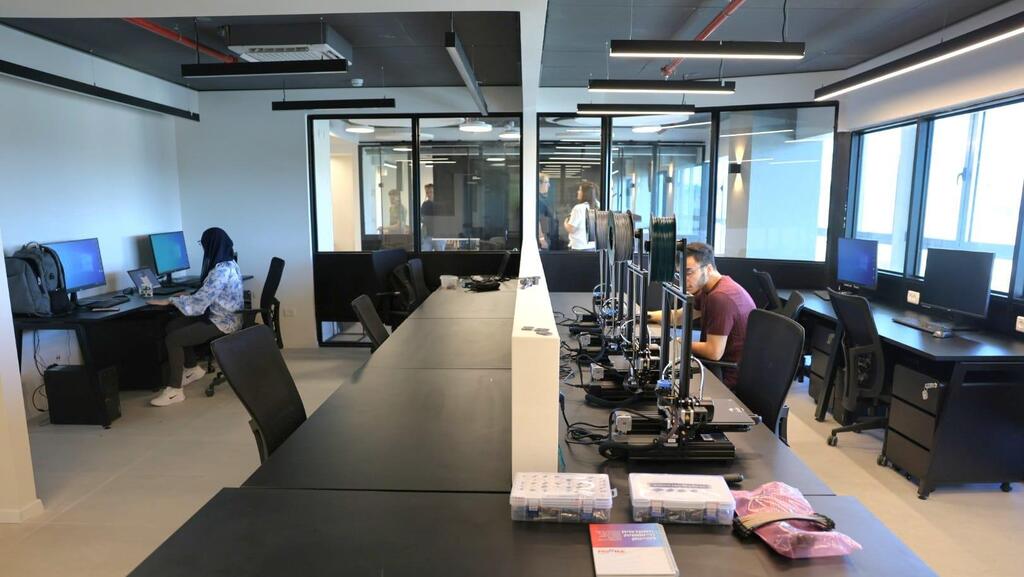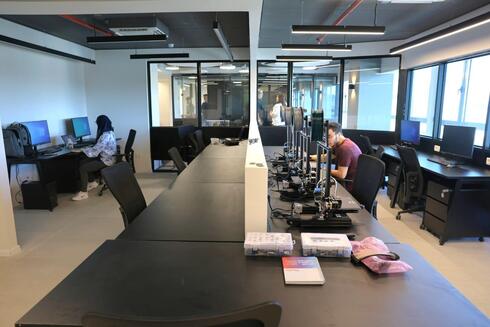
EasTech: A unique opportunity for East Jerusalem developers to integrate into the tech industry
The EasTech complex, which has received an investment of NIS 10 million (approximately $2.7 million), will host high-tech companies that will employ Arab programmers from the eastern part of the city
EasTech, a new high-tech complex whose purpose is to encourage the employment of developers and high-tech professionals from the Arab sector, was inaugurated on Monday in East Jerusalem. It is a unique collaboration between selected technology companies, the Jerusalem Municipality, and the government. The complex, which has received an investment of NIS 10 million (approximately $2.7 million), will host high-tech companies that will employ Arab programmers from the eastern part of the city. This project serves as the first step in the "Silicon Wadi" initiative, which aims to establish a large high-tech campus in the Wadi Joz neighborhood.
Both Israeli and international high-tech companies will operate in the complex, employing programmers from the eastern part of the city. The workspaces are offered to companies free of charge to encourage and develop the high-tech sector in the region, providing quality employment opportunities for young Arab academics who struggle to find work in technology companies outside the area. Among the companies already operating in the complex are Ness, Natural Intelligence, Techlinic, Quantum Vision, and more. Currently, 20 local programmers are employed by these companies in the complex.
"The new complex represents the initial phase of the overarching project, 'Silicon Wadi.' It currently spans 1,000 square meters, including 120 workstations, conference rooms, a training room, and other service spaces," said Einat Mesterman, director of the strategic program for quality employment in East Jerusalem. She also mentioned that the municipality is already preparing to expand the complex with an additional floor once the first floor is fully occupied.
"This initiative provides employment opportunities for young graduates who do not have experience – juniors. It provides awareness sessions to explain the differences between the different high-tech sectors, because regular people do not know the differences between them,” said Mahmoud Abu Sneinah, a Ness employee at EasTech. "I studied computer science at the polytechnic, then I worked in different non-tech businesses, at a gas station, hotels, as a contractor. Then I took part in the automation bootcamp and I succeeded in finding a job in the tech sector,” he told CTech.
Related articles:
The "Silicon Wadi" project is expected to cover an area of 200,000 square meters, encompassing commercial, employment, and industrial sectors. An estimated investment of NIS 200 million will be made into the project. Jerusalem Mayor Moshe Lion said: "This project is one of the most complex endeavors undertaken in Jerusalem in recent decades, aimed at bringing about significant changes on both municipal and national levels. These efforts will encourage the local population to join the leading engine of the Israeli economy, the high-tech sector."
Meir Porush, Minister of Jerusalem Affairs and Jewish Heritage, emphasized the importance of addressing employment gaps in East Jerusalem, stating that the "EasTech" complex is a significant step toward integrating the residents of East Jerusalem into the high-tech field.
